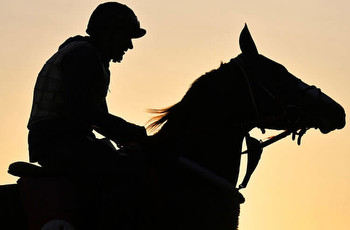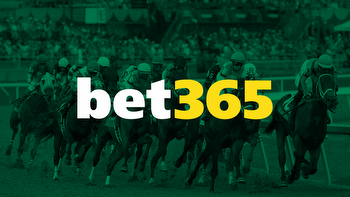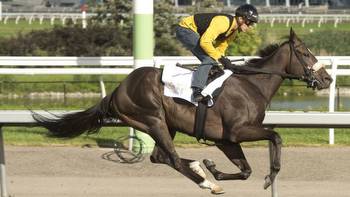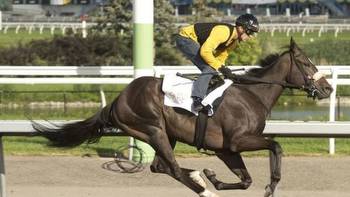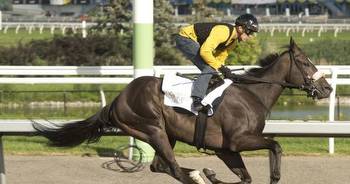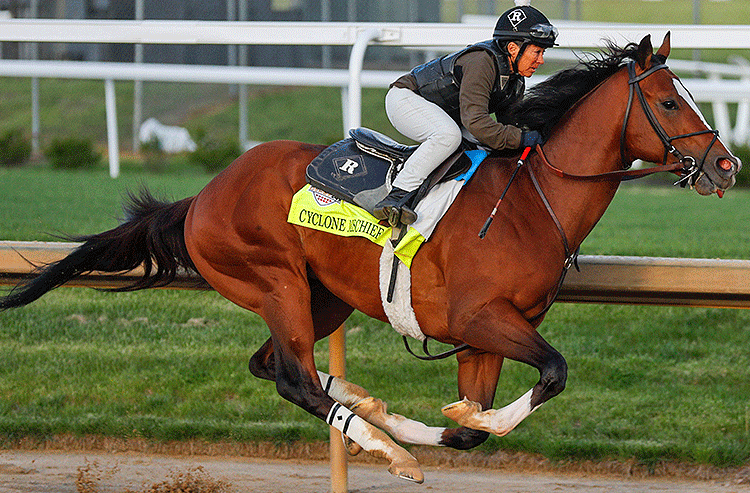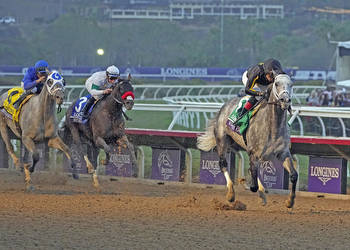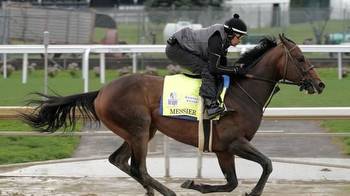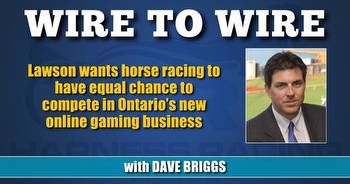Documents Show Sports Betting-Related Uncertainty for Canada’s Horse Racing Sector
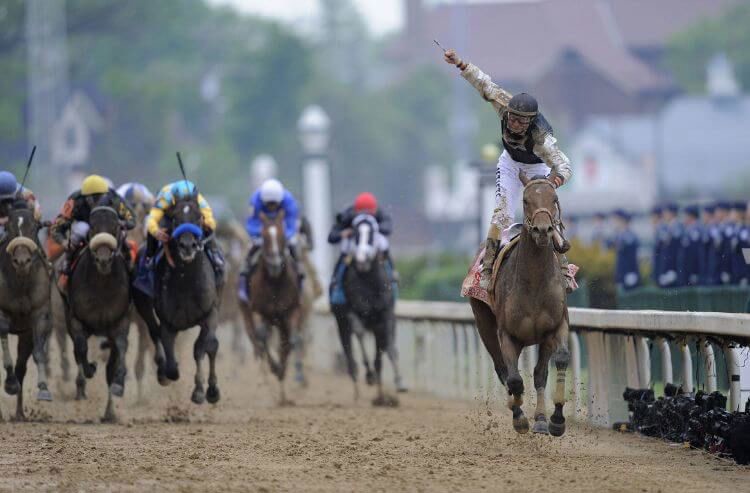
The horse-racing industry faces newer, more direct competition for the gambling dollars on which it relies: legal sports betting.
Single-game gambling in Canada is a boon for sports betting sites but government documents show it created uncertainty for the country’s horse racing sector at a financially sensitive time, especially the federal regulator of pari-mutuel wagering.
The documents recently obtained by Covers through an access-to-information request highlight the concerns facing the horse-racing sector before and after the Canadian government altered legal sports betting in the country in 2021 to include single-event wagering for all sports but the sport of kings.
Some challenges are outlined in a "Winter 2023" presentation explaining the workings of the Canadian Pari-Mutuel Agency (CPMA), a government body supervising that form of betting in Canada on horse racing. Fixed-odds wagering on the sport is not legal in Canada, but the pooled, pari-mutuel system, including its shifting odds and takeouts for taxes and industry funding, is permitted.
Almost immediately, the 2023 presentation mentions "financial pressures" facing the industry and agency, which is funded with a 0.8% levy on each pari-mutuel bet placed in the country on horse racing.
The business model for horse racing “is largely dependent on gambling dollars," the presentation explains, and the total amount bet in Canada on horse racing “has been in steady decline” for the last few decades.
"Horse racing fans are an aging demographic," one slide states. "Younger generation showing increasing concern over animal welfare. Much of the industry is reliant on provincial funding."
'The further decline of horse racing is inevitable, no matter how much money the state throws...It isn’t an appropriate use of public money.' @GovKathyHochul@SenatorRJackson@LindaBRosenthalhttps://t.co/hZMwvBqCRE
— Kathy Guillermo (@kathygfrompeta) June 13, 2023
These have long been concerns for the industry. But the sector now faces newer, more direct competition for the gambling dollars on which it relies: legal sports betting.
In Canada, that competition was ratcheted up in the summer of 2021, when legislation passed in Ottawa decriminalized single-game wagering, freeing the provinces from the parlay-heavy model they previously had to offer. Two years later, it looks like the horse-racing sector and the CPMA have yet to determine what exactly that means for them.
"Impact on horse racing still to be determined," the 2023 presentation said of single-game wagering.
Not much has changed since. The CPMA is a special operating agency within Agriculture and Agri-Food Canada (AAFC), and the latter says the fallout from single-game wagering remains unclear.
“It is difficult to determine the effect of single-event sports betting on the amount bet on Canadian pari-mutuel horse racing (i.e., the handle),” AAFC told Covers in an email. “Last fiscal year the handle was higher than expected, returning to a pre-covid level, and to date it is lower than expected this year. As well, there are other factors in play (e.g., racing cancellations due to weather or smoke, changes in demographics).”
The uncertainty is less than ideal for a sector mapping out its plans years in advance and helping to employ thousands of people in Canada. Horses are living, breathing things that must be raised for years, which costs money.
"Any change to provincial funding model takes years for industry to adjust as horse breeding and training operates on a five-year cycle," one slide notes.
The F word
Compounding the uncertainty is Canadian federalism. While the federal government controls criminal law — including provisions about sports betting and pari-mutuel wagering on horse racing — provinces are the operators. The provinces are not united in how they authorize sports betting either. While most are content to give their government-owned lotteries and gaming companies a legal monopoly on wagering, one, Ontario, has launched a competitive market and licensed multiple private-sector operators.
"Provinces expect new betting products to generate more income but unclear on how much and no new funds currently earmarked to support horse racing," states a slide from an older CPMA document obtained by Covers, titled "Strategic Planning 2021."
The CPMA, meanwhile, needs money from wagering on horse racing to fund itself and has fixed costs to cover even as its gambling-driven revenue is declining. The slides say CPMA revenues fell by an average of 2.7% a year between 2002 and 2020, even before the industry was roiled by COVID-19 and dealt a steeper blow via government restrictions and otherwise. Meanwhile, the agency's costs are "largely fixed," another slide states, including a drug-testing program that accounts for around 70% of its expenses.
The CPMA had an accumulated surplus of approximately $7.9 million but is expected to draw down up to $1 million of that this year, one presentation slide from 2023 indicates. Another suggests the CPMA plans to keep drawing down on its surplus for two to four years as it maintains staffing levels and programming, as, by law, it can run a deficit of up to $2 million.
“We are reaching a tipping point, I would say, in terms of our funding model,” CPMA Executive Director Lisa Foss told the House of Commons justice committee in February 2021. “The objective of the CPMA is to run a zero balance, if you will, where expenses equal revenues each year. We've been fairly successful at doing that in the last number of years, but it's becoming increasingly difficult.”
Provincial problems
At the time of Foss’ testimony, it was unclear if horse racing would be part of the single-game legislation, but it was ultimately excluded. Since then, Canada has legalized single-game sports betting and Ontario launched a competitive iGaming market. That introduced fresh rivals for the gambling dollars on which horse racing depends while leaving the sport off the menu of provincially regulated sportsbooks.
The latest published financial results for the CPMA, for the year ended March 31, 2022, show the agency received around $8.1 million in revenue through the pari-mutuel levy (implying a handle of a bit more than $1 billion) and booked a deficit of $479,000. For the mostly pre-COVID year ended March 31, 2020, the CPMA reported higher pari-mutuel levy revenues of $9.1 million and a net loss of $332,000. That suggests the pari-mutuel handle has shrunk.
Provinces do not equally contribute to that pot of money. According to the CPMA presentation, around 70% of its levy comes from Ontario, which is doing sports betting differently from its peers. Ontario sports betting involves around 30 different entities fighting for business, while most other provinces authorize a single, government-owned corporation to take wagers.
The Ontario model is an issue for the horse-racing industry, as the sport was exempted from the federal single-game betting bill. Therefore, Ontario sportsbook operators cannot offer pari-mutuel wagering on horse racing on their own, as only those with a CPMA license can do so, and only racetrack operators qualify for those permits.
Compounding the problem is the "grey" market for online gambling that existed meant Ontarians were previously betting on horse racing at sites not regulated by the province, an offering some operators then ceased when they accepted Ontario-based oversight. Addressing grey-market gambling was a key driver behind legalizing single-game wagering and the launch of Ontario's competitive iGaming market.
Incoming Woodbine Entertainment Group CEO Michael Copeland said it’s a “reasonable assumption” that the legalization of single-event sports betting, with horse racing excluded, would hurt pari-mutuel wagering.
The new way?
But Copeland and Woodbine are now factoring in a major recent development into their estimates.
The sole holder of a CPMA permit in Ontario is Woodbine, which takes bets on horse racing at its tracks, OTBs, and two digital platforms, HPIbet and Dark Horse Bets. Woodbine also unveiled a partnership with Ontario-regulated bet365 in August that, after months of work, will allow the latter’s users to wager on horse racing on its platform by piggybacking on Woodbine’s technology.
The partnership was a milestone for the Canadian horse-racing industry, as Woodbine was boxed out of the growing world of online sports betting. Instead of competing with bet365, one of the biggest sports-betting operators in Ontario, Woodbine, the industry, and the CPMA are now all earning revenue in collaboration with the sportsbook.
The CPMA reviewed the bet365 arrangement and would have to do so for others that Woodbine says are coming. However, the CPMA also said it has not yet received any similar partnerships to review.
Copeland, though, told Covers that Woodbine, a not-for-profit-like company, has several such arrangements in the pipeline. As a result, additional Ontario-regulated sportsbooks could offer horse racing by next year.
“We don't think that it will take as long as it did the first go-round because we've learned a lot along the way, but it does take a little bit of time,” Copeland said.
The main hurdle, Copeland said, is technological, as it takes a lot of effort to "align the systems" so a user on a sports betting site can place a wager on a race that is routed through Woodbine’s totalizator.
Horse racing is once again up and running on bet365 in Ontario. But there's a note that it's "Operated by Woodbine Entertainment Group." That's because Woodbine is the only entity in Ontario with a pari-mutuel wagering license and is really the one processing the action. pic.twitter.com/lhmJ81J65I
— Geoff Zochodne (@GeoffZochodne) August 17, 2023
The full picture, then, of how single-game wagering is affecting the horse-racing industry is still coming into focus.
“I think we're going to have a good sense once we have, let's say, six months to a year of experience, and we'll be able to know if our projections are coming in as we expect them to,” Copeland said.
In the meantime, the CPMA could take action of its own.
Some slides from 2021 suggest the agency and others were already considering policy solutions amid the sports betting-related uncertainty, even if the longer-term plans were to be "determined by [the] evolving gambling landscape," as one part of the presentation put it.
Another slide suggests the government was expecting some form of collaboration with sports betting sites, as it says that "with or without partnerships with [sports betting operators], it is expected" something will happen, although that, and many other sections, are redacted. A bullet point below suggests the CPMA's funding mechanism is a concern, saying only it is "not clear if levy would be sufficient in long term."
Although the CPMA's 0.8% levy can be hiked to meet any financial challenges, it would need to be done so through regulation. Anything higher than 1% would require a change to Canadian law, according to its executive director's testimony.
So, for now, drawing down on the surplus and seeing how the bet365 partnership and others like it fare seems to be the plan.
“Under the Revolving Funds Act, the CPMA may access its accumulated surplus should revenues generated not satisfy expenses for that fiscal year,” AAFC told Covers. “As such, the decision to access the surplus is only taken once it has been confirmed the CPMA will be in a deficit position for that year. The rate at which the accumulated surplus will be accessed depends on the revenues generated from the CPMA levy and the associated expenses of delivering on the CPMA’s mandate and drug control program.”
A “comprehensive review” of Canada’s pari-mutuel regulations is also under consideration, but no “detailed timeline” is set, AAFC said. Nevertheless, the rules can still be tweaked if necessary.
“The CPMA does not have a mandate to promote or otherwise encourage the conduct of betting on horse racing,” the AAFC said. “Its mandate is to ensure that pari-mutuel betting on horse racing is done in a manner that is fair to the Canadian public. Consequently, any changes to the Pari-Mutuel Betting Supervision Regulations (the Regulations) are done to protect the betting public by ensuring that a modern and effective regulatory framework is in place.”








